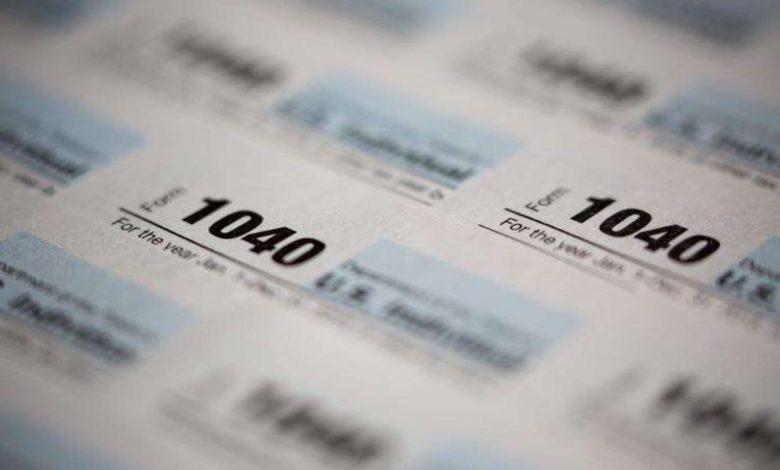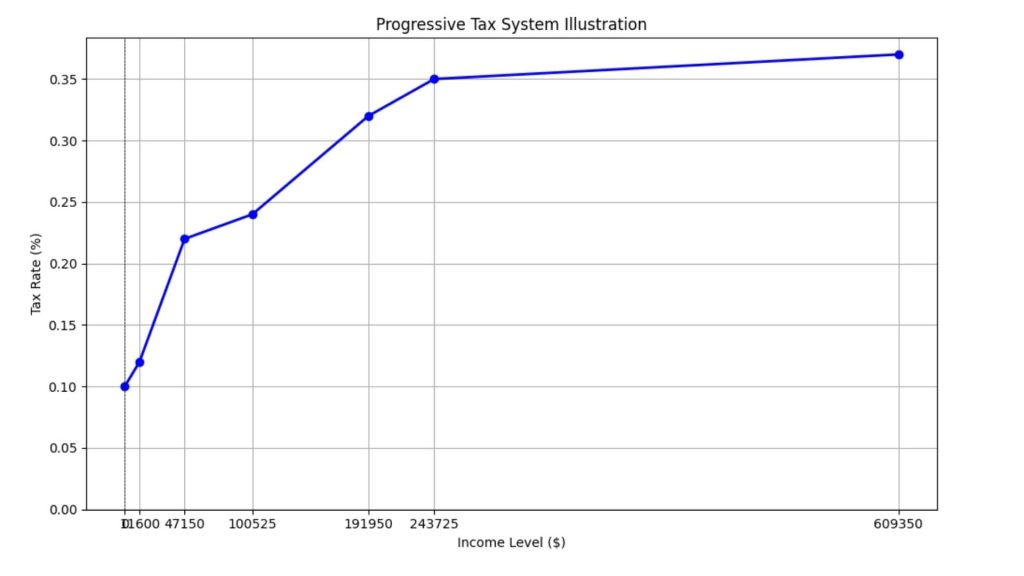
Progressive taxation is a cornerstone of fiscal policy in many modern economies, designed to ensure that individuals contribute to government revenues in proportion to their ability to pay. This system levies higher tax rates on those with greater incomes, thereby aiming to reduce income inequality and provide funding for essential public services. The rationale behind progressive taxation is rooted in the principle of equity, where those who benefit more from the economic system contribute a fairer share towards its maintenance and development.
The progressive tax system can be illustrated using a line graph, as shown in the image. This graph depicts how tax rates increase with higher income levels. Here’s a breakdown of how it works:
Advantages of Progressive Taxation
One of the main arguments in favor of progressive taxation is its potential to reduce income inequality. By taxing higher earners at a higher rate, progressive taxation redistributes wealth, aiming to create a more equitable society. This can lead to a more stable and just society, as extreme income disparities can fuel social unrest and hinder economic progress.
Increased revenue for public services is another key advantage. Higher tax revenues from the wealthy can fund essential services like education, healthcare, and infrastructure. Investing in these areas can improve overall well-being, boost human capital, and strengthen the economy.
Progressive taxation can also act as an automatic stabilizer during economic downturns. As incomes decline, people automatically move into lower tax brackets, reducing their tax burden. This can help maintain disposable income and stimulate demand, mitigating the severity of recessions.
Furthermore, progressive taxation can encourage economic mobility by providing resources for education and social services. Increased access to these opportunities can help individuals from lower-income backgrounds improve their economic prospects, leading to a more dynamic and inclusive society.

Disadvantages of Progressive Taxation
Critics of progressive taxation argue that it can create disincentives for high earners. They suggest that high tax rates may discourage investment and entrepreneurship, as individuals may be less motivated to work harder or take risks if a large portion of their earnings is taxed away.
Another concern is the complexity of tax administration. Progressive systems with multiple tax brackets and deductions can be challenging to manage for both taxpayers and the government, leading to increased compliance and enforcement costs.
High tax rates might also incentivize tax evasion. Individuals and corporations could seek ways to avoid or evade taxes, undermining the effectiveness of the tax system and reducing government revenue.
Some economists argue that progressive taxation can negatively impact economic growth. They contend that lower taxes on capital gains and dividends encourage investment and innovation, ultimately leading to greater economic prosperity.
Progressive Tax vs. Regressive Tax
Progressive and regressive taxes represent two fundamentally different approaches to taxation, each with distinct implications for income distribution and economic behavior. A progressive tax system imposes higher tax rates on individuals or entities with higher incomes, thereby aiming to reduce economic inequality by redistributing wealth from the richer segments of society to fund public services that benefit everyone. In contrast, a regressive tax system places a heavier burden on lower-income earners relative to their income.
Sales taxes and excise taxes are common examples of regressive taxes, as they take a larger percentage of income from those with lower earnings. This disparity arises because these taxes are typically flat rates applied to goods and services, meaning that lower-income individuals spend a greater proportion of their earnings on these taxed items compared to wealthier individuals. The choice between progressive and regressive taxation reflects broader societal values regarding equity and efficiency, with progressive taxes generally favored for their potential to promote social welfare and regressive taxes often criticized for exacerbating economic inequality.